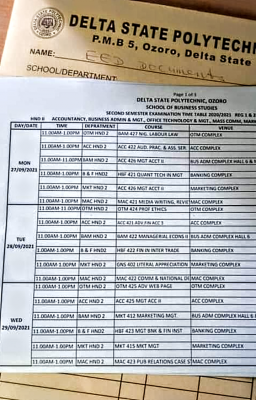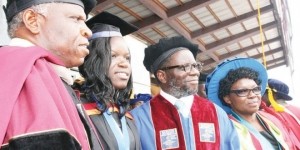
With universities experiencing their worst unrest in years, Egypt’s military-backed authorities have ordered police deployment on campuses to maintain order during the mid-year examinations that run until late January.
Several universities, especially Al Azhar, have been rocked in recent months by violent protests blamed on students backing ousted Islamist president Mohamed Morsi – and police clampdowns on demonstrators.
Al Azhar – Egypt’s major Islamic seminary, which is viewed as a stronghold of Islamist students – has been the scene of frequent violence since the academic year began last October. The institution and its dormitories have seen repeated clashes between pro-Morsi students and security forces.
The students, protesting the army’s July overthrow of Morsi, have been accused of torching several buildings on campus and attacking lecturers believed to be supporting the military.
At least three students have been killed in the Al Azhar unrest, while more than 100 others have been arrested on charges of involvement in violence.
There were more protests last week, with students burning tyres and clashing with police, who retaliated with rubber bullets. In the Nile Delta, six students were reportedly injured when police quelled a pro-Morsi demonstration at Zagazig University.
The Higher Council for Universities, which is in charge of academic institutions in Egypt, has said that the decision to deploy police on campuses is aimed at “foiling” an alleged plan by pro-Morsi students to disrupt the mid-year exams.
“The council has decided [to slap] a complete ban on demonstrations in universities during the exam duration,” said Ashraf el-Sheehi, president of the state-owned Zagazig University and a member of the council.
Despite the ban, intermittent campus protests persist, mainly at Al Azhar University.
Footage on pro-army TV stations last week showed what were said to be attacks by pro-Morsi students at Al Azhar against fellow students taking exams. Pro-Morsi students say their protests are in response to what they call the police’s “brutal violence” on campus.
Local media and academic authorities said university regulations would be amended to allow expulsion of students found guilty of committing “subversive or terrorist acts” on campus following swift investigations. Punished students will have the right to appeal against their dismissal.
University authorities have complained that regulations in place since the early 1970s make it hard for them to expel students involved in rioting on campus.
The proposed amendment comes less than a month after the Egyptian government declared Morsi’s Muslim Brotherhood a terrorist group. Terrorist crimes in Egypt are punishable by death.
Gaber Nassar, president of Cairo University, has said that the deployment of police has curbed violence on the campus.
“Our university has installed surveillance cameras to monitor the campus and ensure security for students,” he said. “The administrative security personnel in Egypt’s universities are not well-prepared. They need more training.”
Cairo University, Egypt’s leading centre of learning, has seen angry student protests since November when an engineering student was killed in a police crackdown on the institution.
The engineering school’s dean and two deputies offered to resign in protest against what they said were failures to protect students.
In October 2010, an Egyptian court issued an injunction against the presence of police on campuses. The court also ruled that security in universities should be the responsibility of administrative employees.
Security agencies were notorious for arresting dissident university students and lecturers, and meddling in academic affairs, during the 30-year era of Morsi’s predecessor, Hosni Mubarak, who was forced out of power in a 2011 popular uprising.



